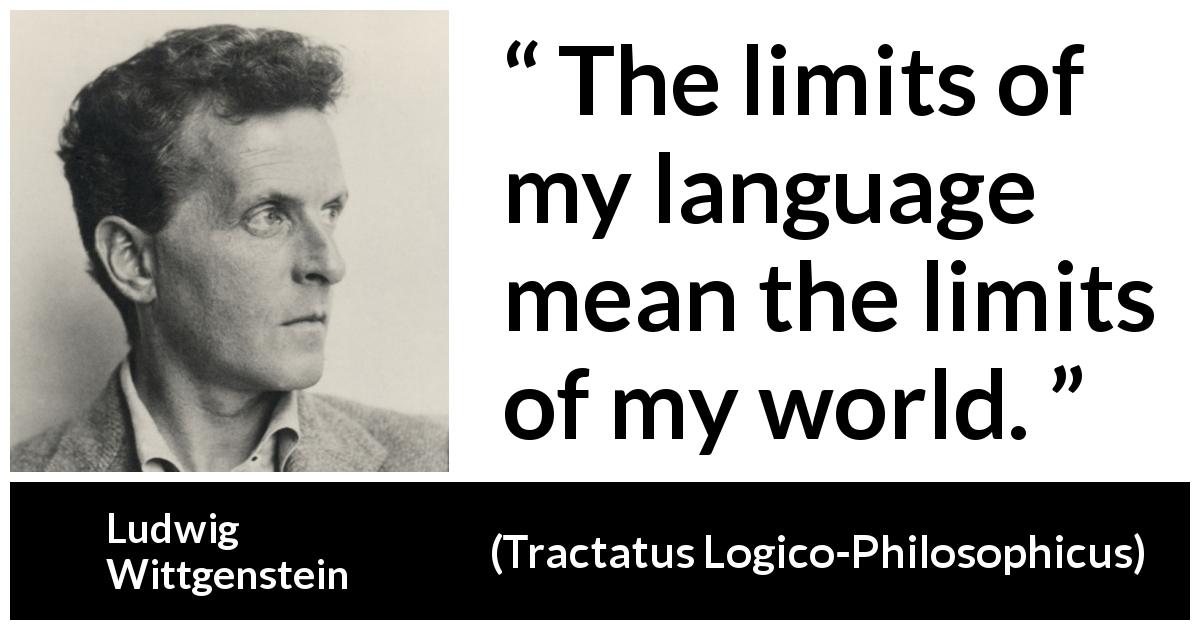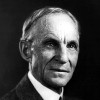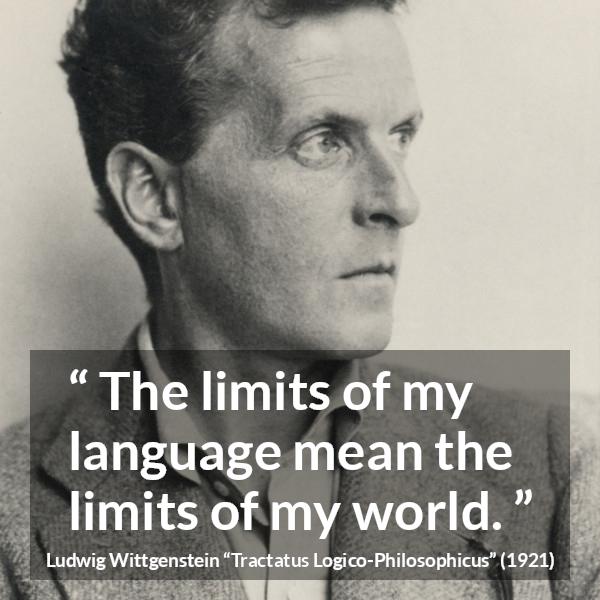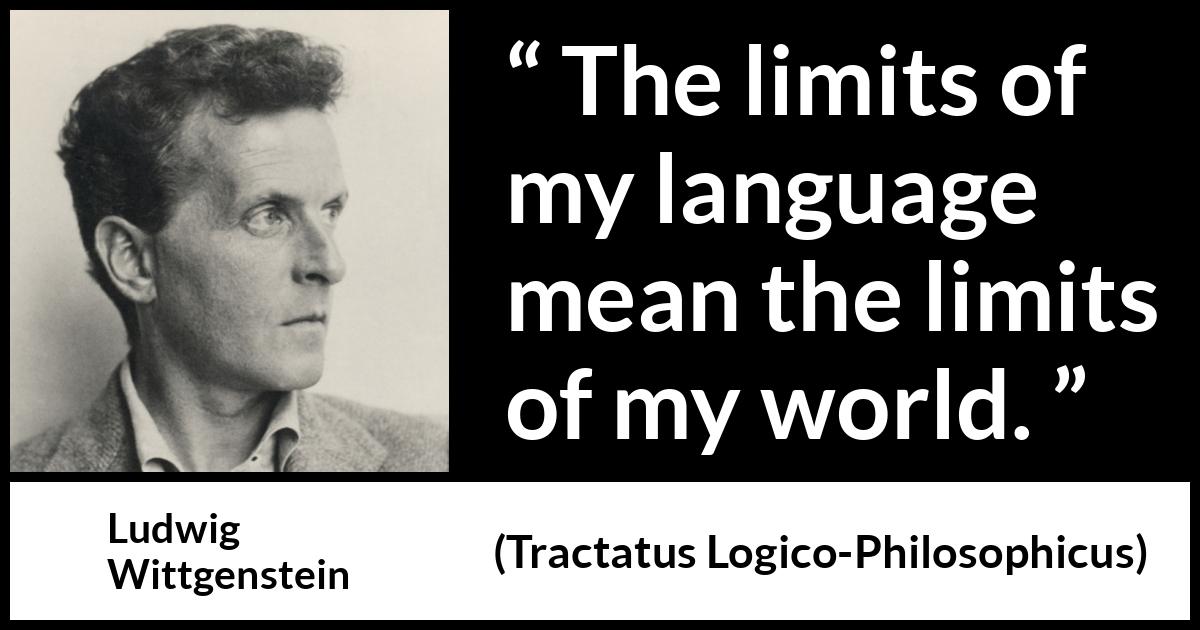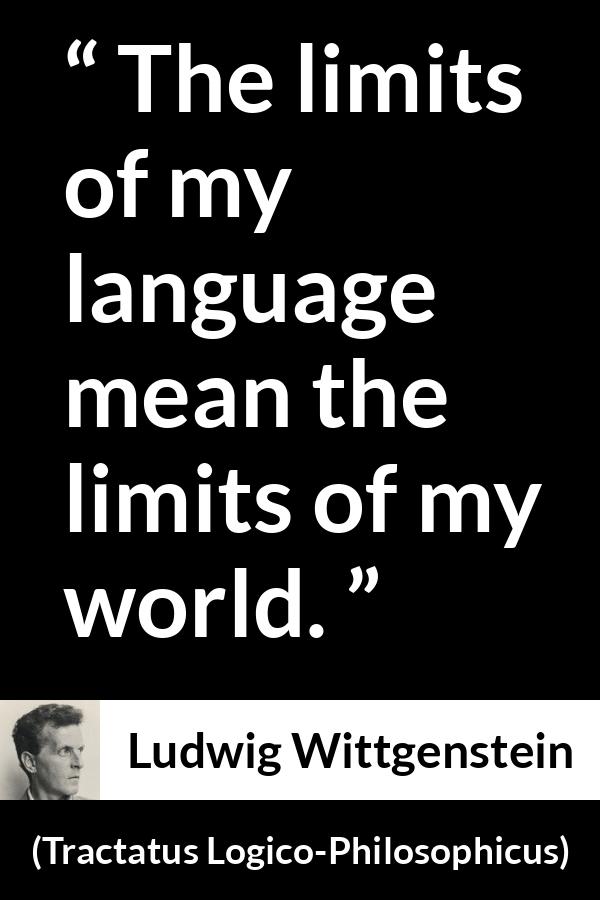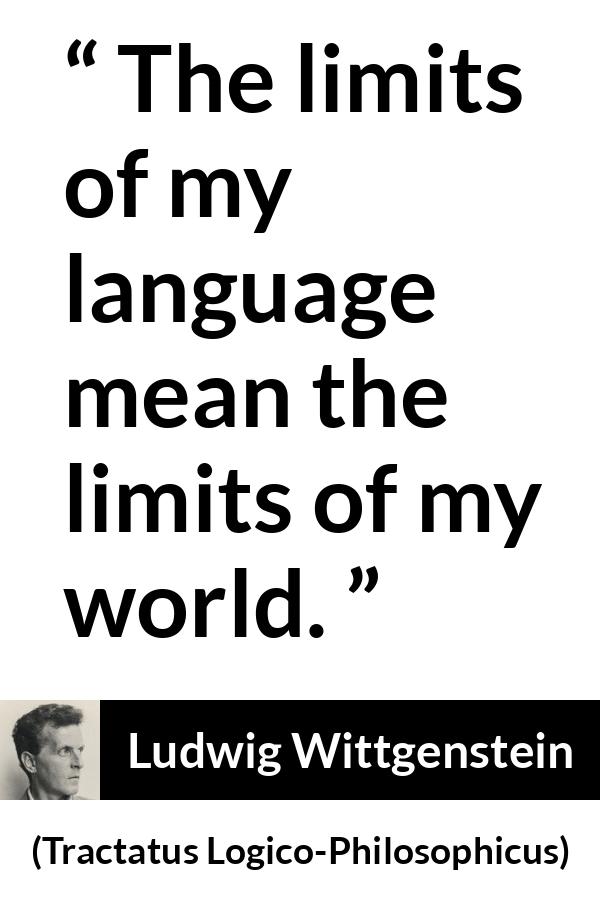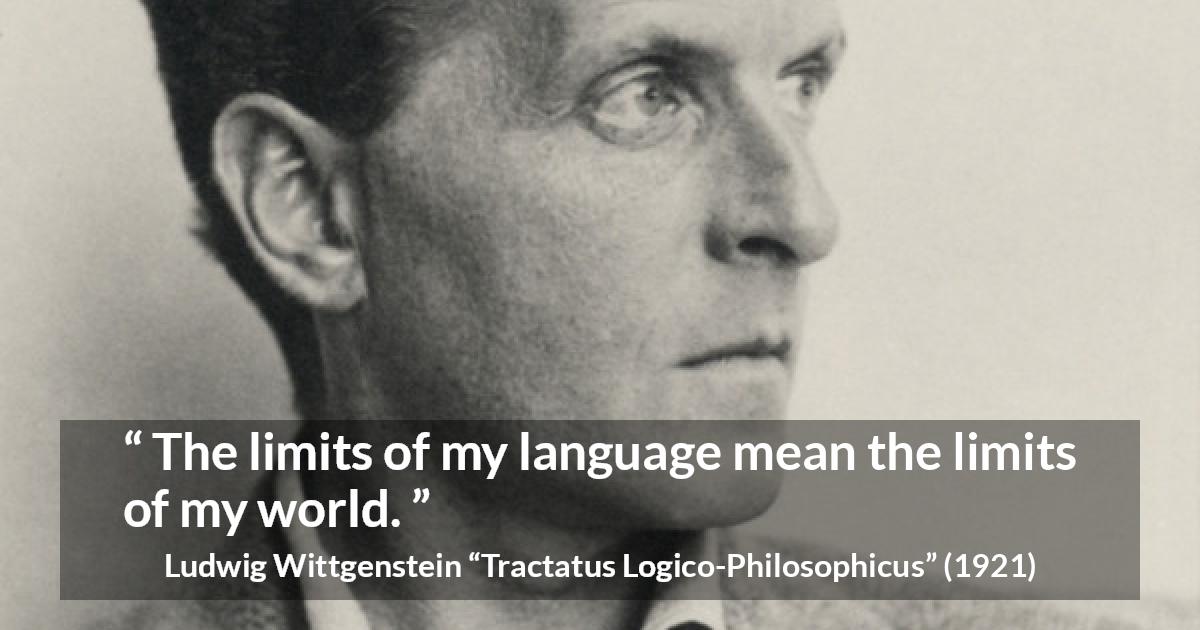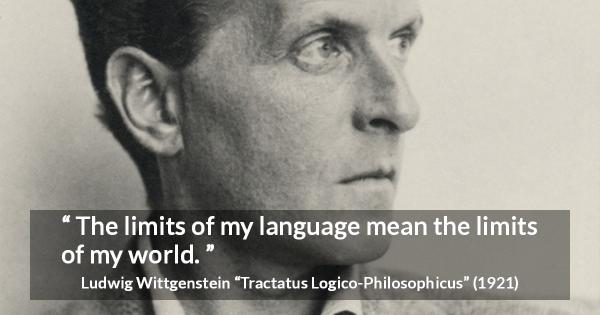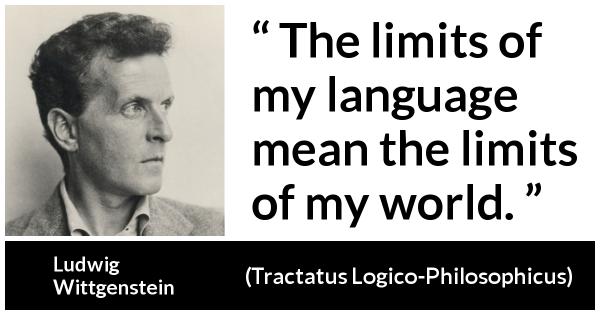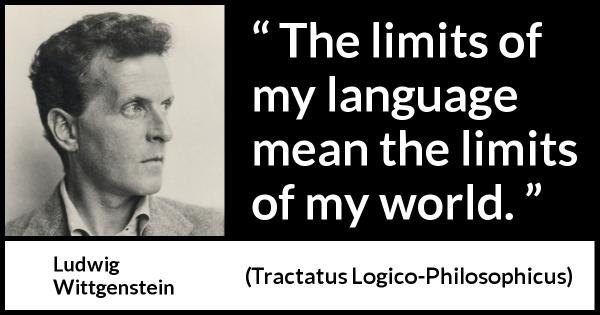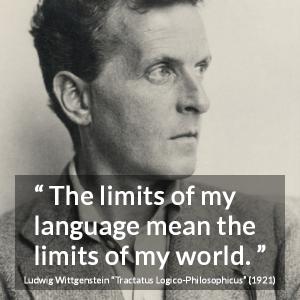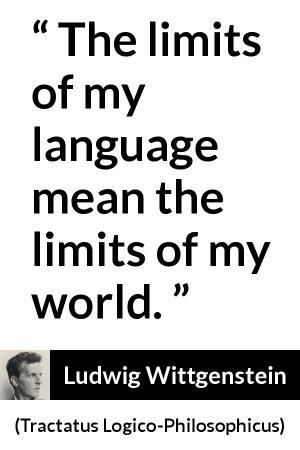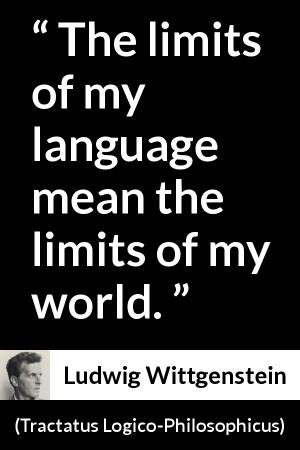“ The limits of my language mean the limits of my world. ”
Ludwig Wittgenstein, Tractatus Logico-Philosophicus (1921). copy citation
| Author | Ludwig Wittgenstein |
|---|---|
| Source | Tractatus Logico-Philosophicus |
| Topic | language world limits |
| Date | 1921 |
| Language | English |
| Reference | |
| Note | Translated by C. K. Ogden |
| Weblink | http://www.gutenberg.org/files/5740/5740-pdf.pdf |
Context
“Therefore logic and its application may not overlap one another.
5.5571 OGD [→GER | →P/M] If I cannot give elementary propositions a priori then it must lead to obvious nonsense to try to give them.
5.6 OGD [→GER | →P/M] The limits of my language mean the limits of my world.
5.61 OGD [→GER | →P/M] Logic fills the world: the limits of the world are also its limits.
We cannot therefore say in logic: This and this there is in the world, that there is not.
For that would apparently presuppose that we exclude certain possibilities, and this cannot be the case since otherwise logic must get outside the limits of the world: that is, if it could consider these limits from the other side also.” source
5.5571 OGD [→GER | →P/M] If I cannot give elementary propositions a priori then it must lead to obvious nonsense to try to give them.
5.6 OGD [→GER | →P/M] The limits of my language mean the limits of my world.
5.61 OGD [→GER | →P/M] Logic fills the world: the limits of the world are also its limits.
We cannot therefore say in logic: This and this there is in the world, that there is not.
For that would apparently presuppose that we exclude certain possibilities, and this cannot be the case since otherwise logic must get outside the limits of the world: that is, if it could consider these limits from the other side also.” source
